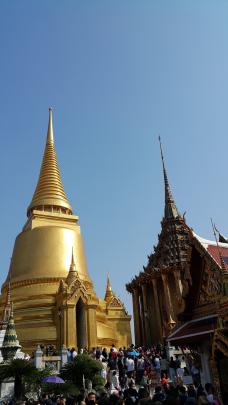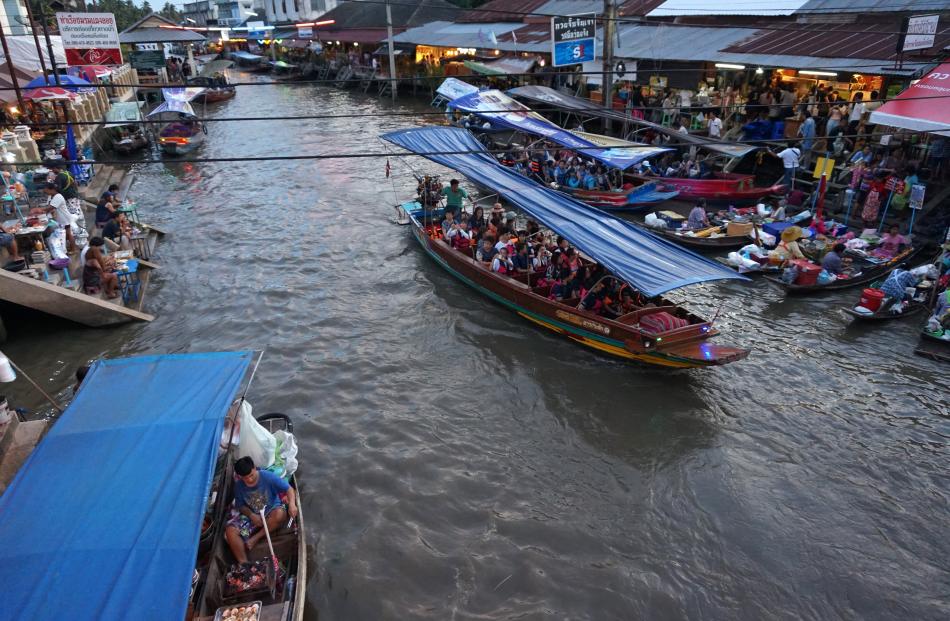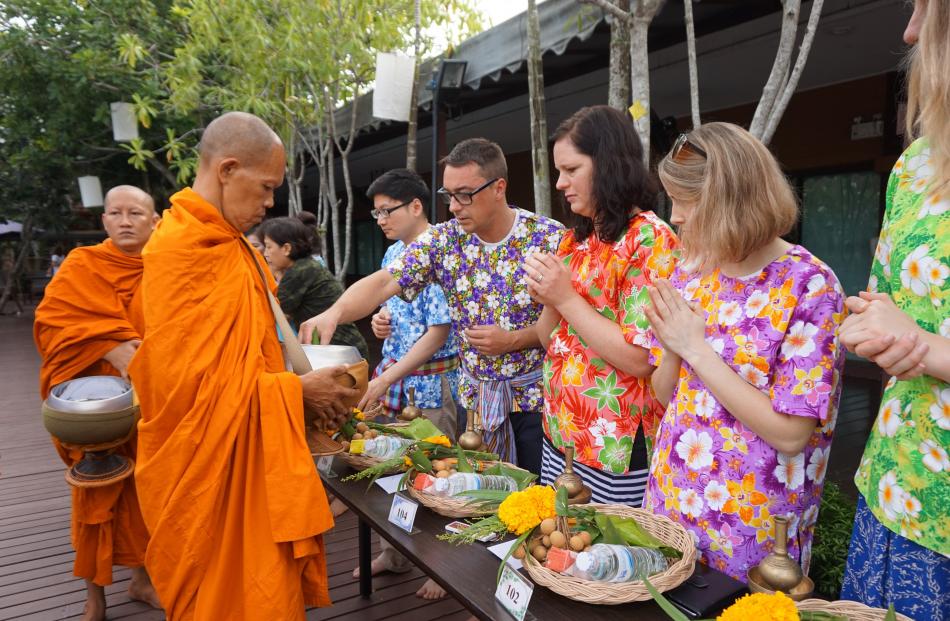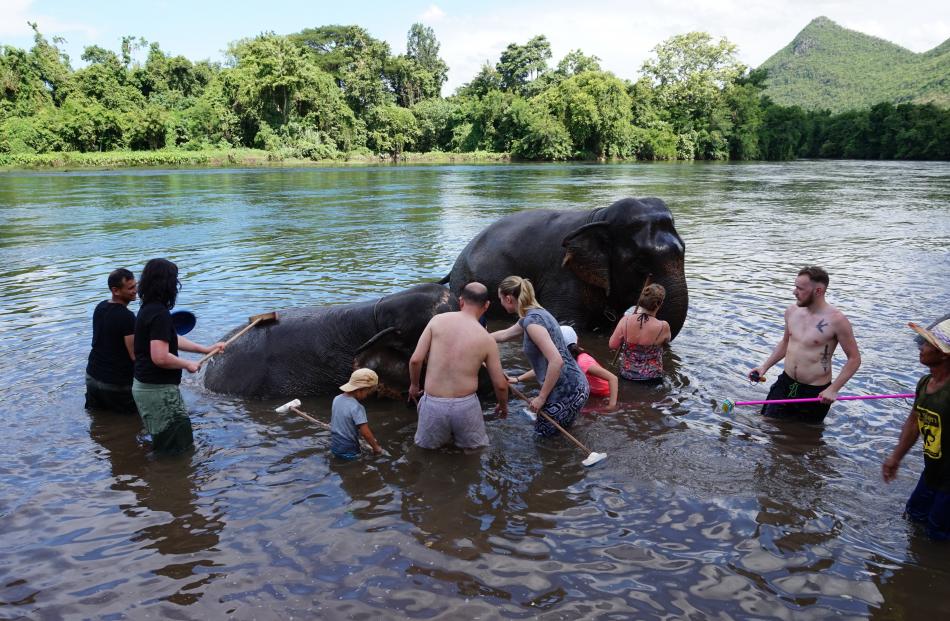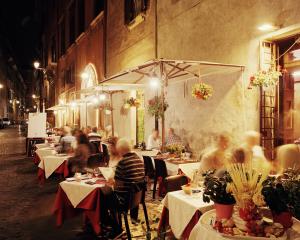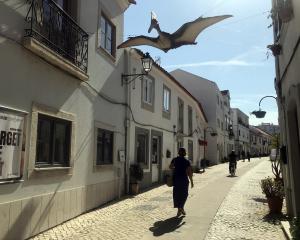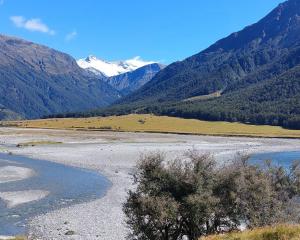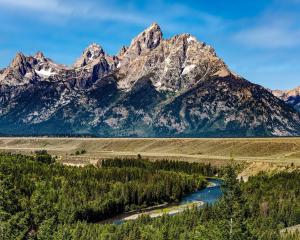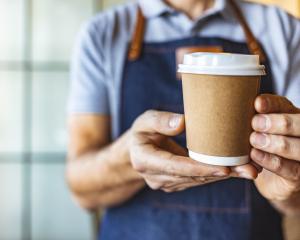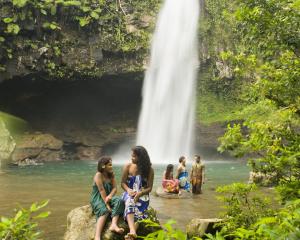Being involved in almsgiving, dining at a floating market and grooming elephants gives an understanding of the charity and commitment inherent in Thai culture, writes Paul Rush.
``Hurry, the monks have arrived, and don't forget to wear your floral ceremonial robes.''
Prapaporn Siridumrongphun, of the leafy Baan Amphawa Resort on the banks of the Mae Klong River, has invited me to a solemn ceremony and I'm embarrassed to be running late.
I'm also feeling a little nervous as I slip on a traditional Thai shirt and cummerbund and race down to the riverside patio. In the nick of time, I join a colourful line of farang (foreign) guests, each bearing wrapped ready-to-eat food items such as sticky rice, fruit, meats, curry and bottled water.
Three barefoot monks shuffle methodically along the line. Loose folds of saffron-coloured fabric are draped over their slight bodies and their heads are freshly shaved. Their faces are a study in stoicism with the merest glimmer of a smile around their mouths as they receive our offerings and place them carefully in bulbous alms bowls cradled under their arm.
This simple act of giving is deemed to generate merit and good karma, contributing towards enlightenment, the ultimate goal in their faith. I feel a sense of privilege being asked to participate in this timeless ritual that serves to anchor the material world to the realm.
As the monks sit in quiet contemplation for a time with bowed heads, the sunlight causes their orange robes to glow with a surreal brightness. All farang eyes are starring fixedly at the poignant scene, which gives me pause to reflect on my own life. How could I ever commit to a life devoid of possessions, depending on the goodness of strangers for basic sustenance?
It's a sobering thought and a salutary lesson in cultural values. In gratitude to elders, the custom of ``bun khun'' requires every Thai male to become a monk for a period of weeks, months or even years. This occurs generally in their youth so that they learn moral and ethical values before raising their own family.
There's another custom that I admire in Thailand's richly diverse culture known as ``sanuk'' - the sense that life should be enjoyable. Smiling and graciousness seem to be common wherever I go, which demonstrates patience, a virtue that's valued highly here.
In Amphawa the real fun comes at night. We are whisked away in a noisy long-tailed boat to see another timeless Thai institution, the floating market. It's an intensely vibrant and sensual scene on the Mae Klong Canal, where the emphasis is on eating, drinking and relaxing.
Fleets of longboats are moored side-by-side, each one with an elderly lady in a broad-brimmed straw hat and blue cotton dress snugly seated on a narrow thwart and almost engulfed by baskets of farm-fresh produce, dried seafood, coconuts, fruit and bundles of lotus flowers.
Hundreds of animated vendors gesticulate and vocalise their unique products behind tiny food stalls that spill out into adjacent streets. Pungent smells of grilled seafood waft on the balmy air, offering me the prospect of an exotic culinary adventure.
This rapid transition from the serenity of the monks to a surging sea of street food has me reeling initially. But Thai travel is often transformational and you learn to be resilient and adaptable. ``Go with the flow'' is the best advice here and aim to be fully immersed in the moment whatever you do in this fascinating land.
My first samplings of aromatic rice dishes, vegetable soups and seafood have a garnishing of dark red threads with a pungent, earthy, bittersweet taste. Surprisingly, it turns out to be saffron, which is painstakingly drawn out from the stamens of a single variety of the crocus flower.
Buoyantly sanguine about my new learning experiences of the Thai lifestyle, I order Pad Thai stir-fried noodles with egg, chicken and shrimp. Sweet, salty, sour and spicy flavours all fight for supremacy on the palate. The result is a harmonious taste sensation that lingers long in the memory.
All this culinary treasure trove of textures and tastes comes at a very reasonable cost and is always served with rice. For Thai people, rice is life and it always takes pride of place on the table as the centrepiece of a meal. I especially enjoy the delicate flavour of the fragrant, fluffy white jasmine rice.
On another pleasantly sunny day I visit Kanchanaburi in Thailand's ``wild west'' and meet some very contented elephants that have earned a pampered retirement at Elephants World. Doctor Samart Prasitthiphon, an altruistic veterinary officer, founded the park in 2008 as a non-profit refuge for elephants that were sick, disabled, abused or very old.
Most of these placid and sometimes unpredictable creatures have been donated and others purchased after enduring long lives of backbreaking work in the logging, transport or tourist industries. From 100,000 elephants roaming Thailand forests in 1900, there are just 3000 domestic and 2000 wild beasts left.
The manager explains the park's motto as ``We work for the elephants, they don't work for us'' and invites me to feed a 60-year-old female with bananas, watermelon and balls of sticky rice. Later, I wade into the river and scrub a beautiful pachyderm with a broom while the gentle giant luxuriates in the river. Visitors have the option of joining a trainee mahout programme.
In this eco-conscious elephant utopia, trainee mahouts learn how to feed, bathe, clean and ride their own charges. Most are even-tempered matriarchs. The babies are frisky, bouncy 200kg bundles of mischief that sneak up behind visitors and nudge them in the back.
There's a lot that's truly unique about a holiday experience in Thailand, the only country in Asia to escape colonisation by the great powers. I'm impressed by the devotion and reverence the people show towards the Theravada Buddhism faith and by the warmth and hospitality they offer to visitors. This is beautifully symbolised by the simple but powerful gesture of the ``wai'' greeting.
The Thai philosophy is based on ``love of wisdom'' and I saw many simple acts of charity and caring for others. If you come to Thailand with an open mind, it's possible to experience a form of awakening that does lead to a greater understanding of this blessed land and its people.
Thailand keeps on giving and this cultural diversity has added a new dimension to the trip, which will stay in my memory forever.
Paul Rush travelled to Thailand with assistance from the Royal Thai Embassy, Thailand Tourism and Thai Airways.
Checklist
Getting there
Thai Airways has regular direct flights from Auckland to Bangkok’s Suvannabhumi Airport with onward connections to Phuket, Krabi Coast, Trang and Koh Samui.
Climate
November to April is the best time to visit during the dry season, when temperatures regularly stay above 30degC. July and August are the wettest monsoon months, when refreshing late-afternoon showers are common but the temperatures
are pleasant and the rain should not be a deterrent.
Language and currency
Thai is the national and official language, but English is widely spoken. At the time of writing, NZ $1 = 25 Thai baht.
Websites
www.tourismthailand.org
www.thaiairways.com

